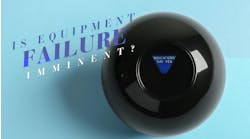[pullquote]
Digitization is providing substantial benefits to chemical manufacturers in all sorts of ways, as we regularly highlight, and its evolution is opening up possibilities many of us haven’t even considered before. For instance, this issue’s article “Take Advantage of Blockchains,” covers five diverse business opportunities: fostering trading of surplus electricity, validating asset condition, verifying employee and contractor qualifications, confirming product integrity, and recovering from a disaster or accident. Another article this month, “Transform Your Turnarounds,” discusses how digital technologies can lead to sizable cost and schedule savings for these essential outages.
Most issues of Chemical Processing now contain at least one significant piece of content related to effectively employing digital technology already available or keeping abreast of the evolution of digitalization and what new developments promise.
However, digitalization has a downside, too. Making sense out of zeroes and ones isn’t nearly as intuitive as assessing actual physical stuff.
Last weekend, like on most weekends, I took my 1964 Studebaker Gran Turismo Hawk out for a drive — a routine I’ve followed for the nearly 40 years I’ve owned it. I feel an old car isn’t just for looking at; it needs to be driven, too.
That Sunday, I noticed the needle on the round analog ammeter didn’t move into the positive range once the car started. After some fairly straightforward troubleshooting, I determined the voltage regulator had failed. Swapping out the old unit only took a few minutes.
In contrast, I’m intimidated to troubleshoot electrical issues on my 2010 Honda Accord Crosstour, an interesting hatchback design that flopped with the public. I’ve got the official service manual, which comes in two volumes; the “engine electrical” section runs more than 80 pages while the “body electrical” section exceeds 500 pages.
I have a basic scan tool for retrieving some codes from the OBD II port that’s built into cars made after 1996. However, I haven’t found these codes particularly helpful. Professional mechanics generally use sophisticated scanners that provide a wealth of codes — many specific to a particular make of car, access to all sorts of data stored by an automobile’s onboard computers, and sometimes bidirectional operation. As popular YouTube car-repair guru Scotty Kilmer (www.youtube.com/user/scottykilmer) repeatedly stresses, proper diagnosis often requires a high-end scan tool such as the $5,000 one he uses.
Digital technology has made cars more efficient and reliable. However, this has come at a cost. Many backyard mechanics struggle to properly understand, let alone troubleshoot, the sophisticated electronic systems in today’s cars.
Granted, that’s not so much of an issue with process equipment because plants usually have access to digital tools. Still, as I’ve warned before, new engineers enter industry without exposure to real-world equipment during their time in college (“Young Engineers Need Our Help”).
Gathering zeroes and ones on the operation and condition of machines, while invaluable, likely doesn’t help these engineers get a real sense of the physical equipment behind those data.



